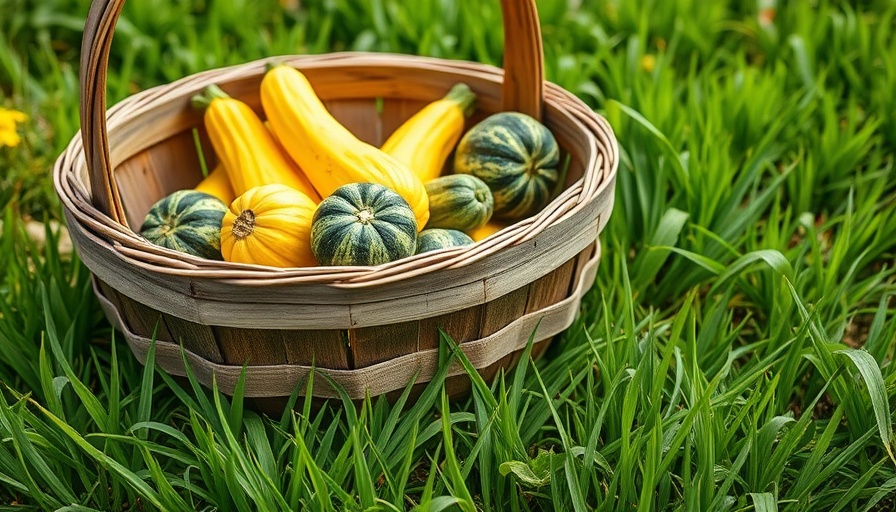
Why Growing Squash is a Rewarding Experience
If you’ve ever savored the taste of freshly harvested squash, you understand the joy of growing your own food. Gardening nurtures our connection to nature while offering a source of fresh produce right in our backyards. Whether you're a seasoned gardener or a newcomer, cultivating squash provides an excellent opportunity to enhance your skills and enjoy the benefits of self-sufficiency.
Summer vs. Winter Squash: What You Need to Know
It’s essential to understand the difference between summer and winter squash when planning your garden. Summer squash, including popular varieties like zucchini and yellow crookneck, is harvested when tender, while winter squash is left to mature until its rind hardens. By selecting squash according to your climate and growing conditions, you can better enjoy a bountiful harvest. Plus, quick-growing summer squash varieties make them an excellent choice for novice and experienced gardeners alike.
Preparing the Soil for a Thriving Garden
Before you sow your seeds, take the time to prepare your soil properly. This step is crucial for growing healthy squash. Start by removing weeds and leftover crops. Turn the soil multiple times to aerate it. Enhancements such as organic worm castings, bone meal, and vermiculite can significantly improve soil quality. Don’t forget to test the soil's pH level to determine its acidity; this will guide you in making appropriate adjustments for optimal growth.
The Magic of Hand Pollination: Ensuring a Robust Yield
If you find your squash plants aren’t yielding fruit, the issue might be insufficient pollination. Many gardeners experience this problem, especially those with limited garden space. Hand-pollination can be an effective solution. Simply collect pollen from male flowers using a small paintbrush and apply it to the female flowers. This method ensures successful pollination and a fruitful harvest.
Gardening Benefits: Beyond the Harvest
Gardening is not just about growing food. It’s also about enriching our mental well-being. Working with soil, planting seeds, and nurturing plants can be incredibly therapeutic. Studies show that spending time outdoors, connecting with nature, and engaging in physical activity contributes to improved mood and reduced stress levels.
Embrace the Garden: Tips for Success in Urban Spaces
For readers in urban areas, growing squash doesn’t require vast spaces. Container gardening is an excellent alternative for those with limited yards. Using large pots filled with high-quality soil, you can still grow thriving squash plants. This flexibility makes urban gardening accessible while allowing you to enjoy the fruits of your labor.
Actionable Steps for New Gardeners
Getting started with gardening can feel daunting, but breaking it down into smaller steps makes it manageable. Begin by choosing your squash varieties based on taste preferences and growing conditions. Develop a gardening schedule to keep your plants healthy, and don’t hesitate to ask local gardeners for advice. This community support not only fosters connections but also enhances your grocery list with new varieties to try.
In conclusion, growing your own squash is a gratifying endeavor that connects you to sustainable practices while enriching your diet and mental health. Grab some seeds, prepare your soil, and embark on this delightful journey of gardening.
 Add Row
Add Row  Add
Add 




 Add Row
Add Row  Add
Add 

Write A Comment